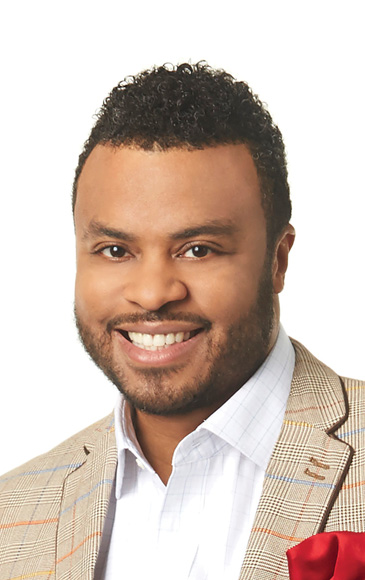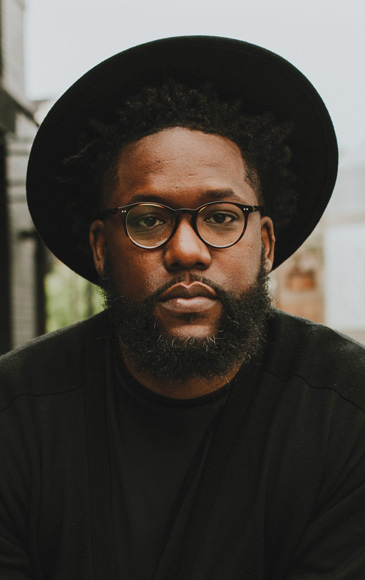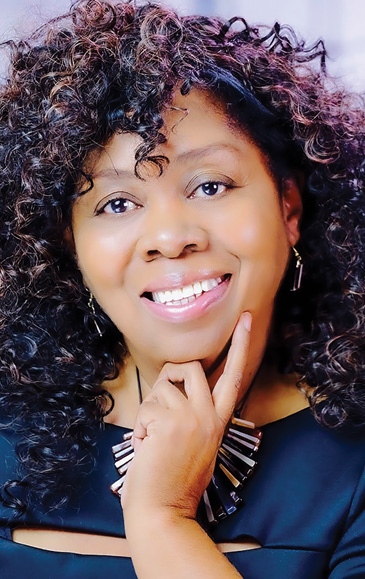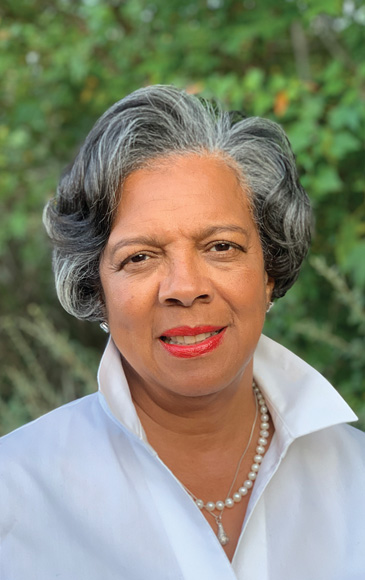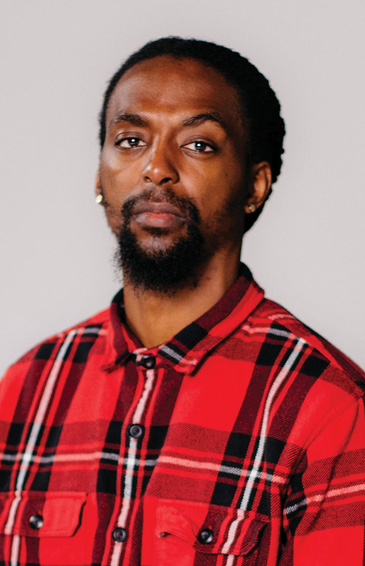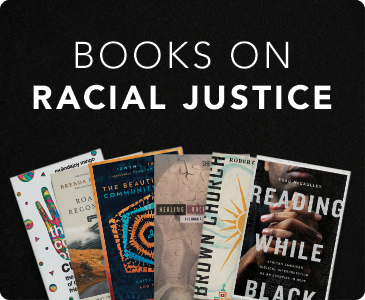Five Authors Discuss Black History, Faithful Justice, and Hope for the Future
Learn from Black Voices During Black History Month and Beyond
These five IVP authors share their ideas for new ways we can be celebrating Black History Month as well as their hopes for the future of racial reconciliation in America.
What stories should be covered this year during Black History Month that you feel might be overlooked? Why is it important to address these issues?
Barbara Peacock, author of Soul Care in African American Practice: Persons from the African diaspora, enslaved and free, provided labor that built the White House, the United States Capitol, numerous government buildings, and the basic infrastructure of American institutions, which inherently bear the hands and hearts of African Americans. African Americans have not only picked cotton on plantations and nurtured Euro-American families but we must also be acknowledged for the intellectual, highly skilled creative and artistic acumen that founded colleges and universities; the invention of products consumed daily without thought; insight and contribution to the fields of science, medicine, law, the military, business, theology, finance, and architecture, etc.
An intentional effort to educate and make others aware of this rich history must be shared with all of American society and not confined to the segregated entities of Black families, communities, and churches on Sunday morning. African American history extends beyond February, which has officially been designated as Black History Month. Our history is integral to the whole of American history and needs to be recognized as such.
MelindaJoy Mingo, author of The Colors of Culture: Stories that highlight the accomplishments and achievements of Blacks and not just the struggles and pain. These stories often get overlooked in light of current events that only highlight racism and despair. The history of the Black church and its vital spiritual impact and leadership of the Black culture and nation as a whole is rich in historical contexts that deeply explain the faith of Blacks.
Terence Lester, author of I See You and When We Stand: There is a tendency to focus on the "one-in-a-million" stories, the stories that inadvertently reinforce the harmful idea that equal opportunities are available for all if only you worked hard enough to succeed. They often spotlight those who are considered model minorities, throwing the rest out of focus, diminishing the disproportionate struggles of racial inequality that affect people of color.
Just because one BIPOC person has been successful, we need not use that person's success to discredit the millions of other people who suffer from systemic issues. During Black History Month, I believe more stories of current people working to lift up their communities should be highlighted and those who dedicate themselves to speaking up for those whose voices have been silenced. Jesus honored every story of those he was proximate to! We should do the same.
Have recent events changed your perspective about faithful justice? If so, how?
Antipas Harris, author of Is Christianity the White Man's Religion?: The social uprising of 2020 signaled that faithfulness to justice must be a long-term commitment to systemic change. We must not assume that because a racial problem like the killing of an unarmed black person is not the national optic, the problem has subsided.
Racial injustice is far more of an American problem than the sustained attention to it reveals. The recent events alerted me to the fierce urgency of now. Another generation is battered with the same historic racial tensions that previous generations endured. I am afraid that the world we leave behind will be far worse than the current state of injustice. We have work to do. This is more than a notion.
MelindaJoy Mingo: The events of 2020 changed my perspective about faithful justice. I had a personal awakening that some things have changed in our society for good in areas of justice, but in so many ways some things remain the same. The winds of adversity and injustice swept through our nation, and there were so many painful images and instances of disunity and misunderstanding that my perspective of faithful justice is that it still is not the foundation of our country. We are still having some of the same conversations about race and justice that we've had for over a decade. I am hopeful, and I am also sobered. Many people of color are invited to sit at tables where they have not been invited before to talk about their experiences and share stories, but it's not enough to invite people to the table to talk about issues unless they have real honor to bring their lived experiences, giftings, and insights so that lasting change in the area of racial reconciliation can occur.
Terence Lester: The events in 2020 increased my desire to show up on the frontlines like Jesus. If we really think about it, Jesus was a frontline worker. He came close to lepers, healed the sick, and grieved with people who lost loved ones. He was the embodiment of what it means to show up for neighbors struggling with a crisis as it relates to injustice.
Jesus addressed issues of justice not with a highlighter but with his life. In a year full of unprecedented trauma, pain, and historically significant events, the embodiment of this dedication to justice was more vital than ever. Striving for faithful justice is much more than giving talks or writing opinion pieces to highlight critical issues. Instead those striving for faithful justice must focus on real-life work on the ground where it is needed most. Faithful justice means action now.
What does faithful justice mean to you?
A. D. "Lumkile" Thomason, author of Permission to Be Black: Faithful justice considers all who are made in the image of God as worthy of equitable treatment, and it is about people being willing to put themselves in harm's way to see that reality manifested.
Terence Lester: Faithful justice means fighting for what is right even when it is not popular or given attention. Faithful justice means showing up in lament and standing up regardless of popularity, convenience, cost, and even calculated risk. This is what Jesus did. Even when it was not popular, Jesus ate with tax collectors, affirmed women, and was proximate to those religious leaders who were shunned. Jesus came for the poor to preach good news to those who were oppressed, and he did this without thought to the target it made him. If we are to be faithful in this way, we get a chance to identify with the one that came and set the standard for humanity—our Savior. We must emulate his struggle and strive toward faithful justice unwaveringly because it is simply in our makeup as believers.
MelindaJoy Mingo: Faithful justice is an intentional and conscious act of being true to the heart of what I believe, and it has always been our Father's desire for all people, especially the marginalized and oppressed, to have human dignity and intrinsic value. Genuine and faithful justice is giving a voice to those who don't normally have a voice in society, such as the poor and oppressed. It is both continued and deliberate actions when it is not the popular thing to do and when it goes against the norm of the culture.
Faithful justice is when I allow my character and heart to be intentional in being aligned to God's system of justice, which is actually the fullness of mercy and grace, unbiased, and producing true repentance. It is loving the other, the foreigner, the stranger, the oppressed, and a willingness to right inequities not just for one instance or circumstance that occurs in society but rather a faithful commitment to truly be an image bearer of Christ and to do his will.
Antipas Harris: Faithful justice is not merely a struggle for personal fulfillment. It is when each of us participates in a constant pursuit of a world in which all people are viewed and treated in such a way that lifts them to equal personhood with all others. Faithful justice is, moreover, a commitment to contributing our gifts and resources to the concern for the common good. This includes advocacy for the weak and vulnerable members in society. It involves ongoing efforts for sustaining equity in community, treating each other fairly, resolving disputes and grievances, distributing resources according to common need, upholding the dignity of the human person, promoting peaceful interaction, enhancing political and economic participation, and encouraging a sense of stewardship for the natural world.
What questions should people be asking around Black History Month that historically they have not asked? How would you answer those questions?
Barbara Peacock: As I ponder history, I ask myself, What are some aspects of African American history that need to be highlighted during African American History Month? Is it the Black Lives Matter protests of 2020 as a result of the injustices and murders of persons like Trayvon Martin, Breonna Taylor, George Floyd, and numerous others? Should we highlight movements that sought justice under the leadership of people like Medgar Evers, Malcolm X, Martin Luther King Jr., and John Lewis? Should we focus on knowledge and growth with the invention of peanut butter by George Washington Carver, the vision to celebrate Black history with Carter G. Woodson; leaders in the entertainment and sports industries like Michael Jackson or Michael Jordan; or the founding of historically Black colleges and universities?
The people, events, inventors, and discoveries that need to be highlighted in Black history are innumerable and cannot be summarized or effectively acknowledged in merely one month.
MelindaJoy Mingo: While Black History Month is so misunderstood by some and the question is asked, Why do we need a Black History Month? I believe that the greater questions are, Why have the historical achievements and struggles of Blacks been so overlooked, and how can we remedy that misunderstanding and lack of information in 2021?
I believe one key question that can be asked is, What can I learn that will allow me to see my Black brothers and sisters as equal? and lastly, How do I position myself as a learner during Black History Month so I can learn from the lived experiences of Blacks in this country? Even though I may not understand or relate to any of the experiences, I will not discredit the pain and struggles of a people who have been instrumental in the shaping of this nation through inventions, etc.
A. D. "Lumkile" Thomason: We need to acknowledge the contribution of African Americans to this country, and one month should not be the starting and stopping point. Black History Month is just a wake-up call.
What is your hope for the future when it comes to the idea of racial reconciliation?
Terence Lester: Our focus for the near future should be on racial justice, rather than skipping steps to rush to racial reconciliation. Many White Christians think that racial reconciliation solves many of the injustices that persons of color face. I think there needs to be a robust education of the differences between the two because they are not the same. Making the distinction between the two is vital because reconciliation and progress cannot organically come without first acknowledging and rectifying the historical systems that have disadvantaged Black and Brown people. There can be no forgiveness without lament and repentance.
When overlooked or hastened as a way to assuage guilt, this can result in more significant harm through putting a superficial Band-Aid on issues that require more extensive surgery to achieve long-term change.
MelindaJoy Mingo: My hope for the future in the area of racial reconciliation is that followers of Christ will grasp the idea that reconciliation begins first in our personal lives as we look deeply within and sincerely identify any areas that can hinder us from seeing others as people of value, worth, and dignity. As believers, we have already been given the ministry of reconciliation, and we can move from reconciliation to racial righteousness. It is righteous to walk in humility and love toward our brothers and sisters of all races. It is the right thing to do in the eyes of God.
Antipas Harris: I hope that America pauses to reconsider its history for the purpose of lamenting the racial problem and revisioning a more just path forward. We need a focus on conciliatory strategies. Because there is no point in America's past that models how things should be, the challenges we face require a creative ethical imagination. This involves all of society and all of the systems, structures, and attitudes that have privileged Whites and oppressed people of color. The responsibility of conciliatory racial vision and action rest on White people as well as people of color. We must work together as one people joined by a common Creator, a common life, and a common destiny.



